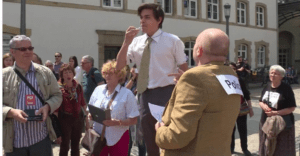MEPs will vote on 16 April to ensure minimum common standards of protection for people reporting breaches of EU law across the EU. Currently, legislation for whistleblower protection is different for each EU country and covers only some policy areas.
Main aspects of the legislation
The measures, provisionally agreed with the Council in March, aim to make it easier and safer for whistleblowers to report irregularities.
The rules cover different areas: tax fraud, money laundering, public procurement, product and transport safety, environmental protection, public health, consumer protection and data protection.
Public and private organisations with more than 50 employees will have to set up internal reporting channels that would allow people to report within the organisation itself. National authorities will also have to establish independent external reporting channels. Whistleblowers will be protected whether they choose to report internally or externally to national or EU bodies.
The directive also provides for the possibility to report publically, to the media for example, in certain cases, such as there being no follow-up to their initial report, in case of imminent danger to public interest, or because of a risk of retaliation.
All forms of retaliation for reporting are prohibited, including demotion, suspension or dismissal. Protection is also granted to people assisting whistleblowers, including journalists.
EU countries should provide whistleblowers with legal, financial and psychological support as well as access to information on reporting channels and procedures,
Parliament’s commitment to whistleblower protection
Parliament has been supporting the introduction of common EU rules on whistleblower protection for years and this issue has been highlighted in its enquiries into tax evasion scandals. In a resolution adopted in February 2017, MEPs called on the European Commission to propose legislation to protect the EU’s financial interests. In October 2017 they reiterated that call.







Leave a Reply